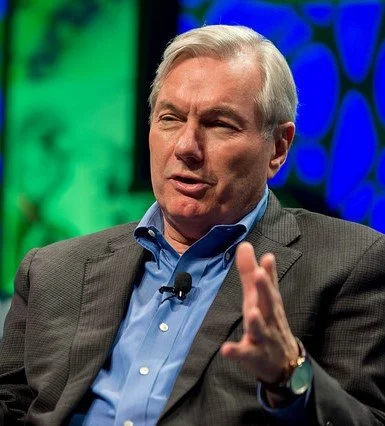At the Intersection of Reality and Kindness
Photo Credit: CIDRAP
Dr. Michael Osterholm will not hesitate to tell you he is a realist. But when I asked him if he was a hopeful person, he said yes without skipping a beat. He has always seen the glass as half full, even though he grew up the oldest of six kids in a small rural Iowa town with a father who struggled with alcoholism and was abusive. Being the oldest, Dr. Osterholm was the recipient of a lot of his dad’s abuse. He credits caring and kind adults who saw something in him and helped him choose a better path. One mentor in particular, the wife of the newspaper owner where his dad worked, helped him realize at a young age that infectious disease was his calling. She had a subscription to the New Yorker, and when she was done with them, she would pass them on to him. It was there that he discovered Annals of Medicine written by Berton Roueché, which were medical mysteries that he looked forward to and made sure to read. By the time Dr. Osterholm was in high school, he was helping to track outbreaks of salmonella and La Crosse encephalitis in the community.
Before the Covid-19 pandemic, I read interviews and op-eds written by Dr. Osterholm about our risks for a global flu-pandemic, which alarmed me. But I appreciated that Dr. Osterholm always made clear there were steps that could be taken to protect ourselves. In March 2017, along with Mark Olshaker, he published the book, Deadliest Enemy: Our War Against Killer Germs, which clearly explains the threats we face from killer germs, but offers pathways to protection.
When Dr. Osterholm learned of what was happening in China toward the end of 2019, he was initially relieved that it was a coronavirus rather than an influenza outbreak. We experienced outbreaks of two other coronaviruses, SARS and MERS, that did not result in pandemics. However, his relief didn’t last long. By early 2020, it was clear that Covid-19 was a very different virus because of how quickly it spread. The rapid transmission, along with the absence of a vaccine for it, made him realize we were in uncharted territory. By the end of February, he believed we all needed a wake-up call to what we were dealing with. The World Health Organization declared Covid-19 a pandemic on March 11, 2020.
During our conversation, Dr. Osterholm shared that a national news anchor had taken to calling him Dr. Doom. Before a recent interview, she said she wasn’t going to call him that anymore because everything he’d said about the pandemic had come to pass. He emphasized that he simply follows the data, and if he doesn’t have the data, he is not afraid to say “I don’t know,” which he considers three very important words. Looking back, he believes officials did not do a good job of using infection rate data to inform when they locked down with many of them doing it too soon, which eroded the public’s sense of good will.
Dr. Osterholm laughed when I asked if he was superhuman because it often seems he is everywhere all at once. He said being a long-distance swimmer helps him pace himself for the long haul by not dwelling on how far he has to go. He has a great support system that includes his family, friends and wonderful colleagues, many of whom are at the University of Minnesota where he has been since 1975. Dr. Osterholm serves as the director of the Center for Infectious Disease, Research and Policy (CIDRAP), which he also founded. In March 2020, CIDRAP launched the Osterholm Update: Covid-19 podcast. Episodes are filled with useful and important information, but also include a segment called Beautiful Places, which Dr. Osterholm describes as “medicine for the soul.” He said it is an amazing community of listeners, who not only ask great questions, but also show kindness. It is the kindness he’s received that has helped him deal with death threats, and the loss of friends and colleagues to Covid-19.
Photo Credit: Lisa Fotios
I asked Dr. Osterholm if he has advice for remaining hopeful as the pandemic continues, we deal with other outbreaks and the potential for future pandemics. He said that we are living through difficult times as a divided nation with too many people still dying of Covid-19. But he has always believed that there is more good in the world than bad. He said the best thing we can do going forward is be kind, because it can change someone’s life.



